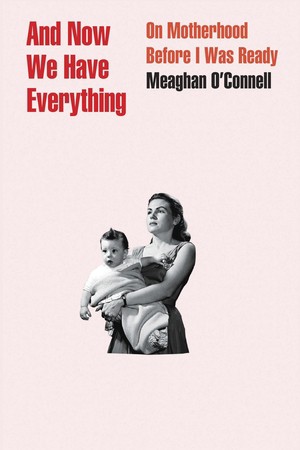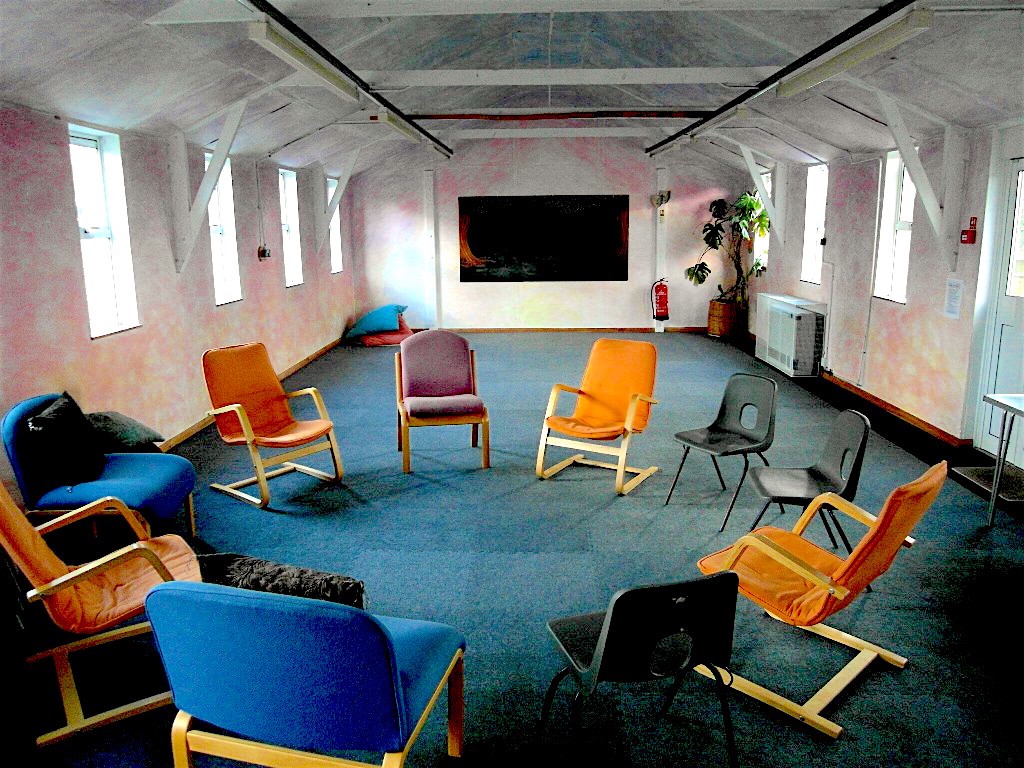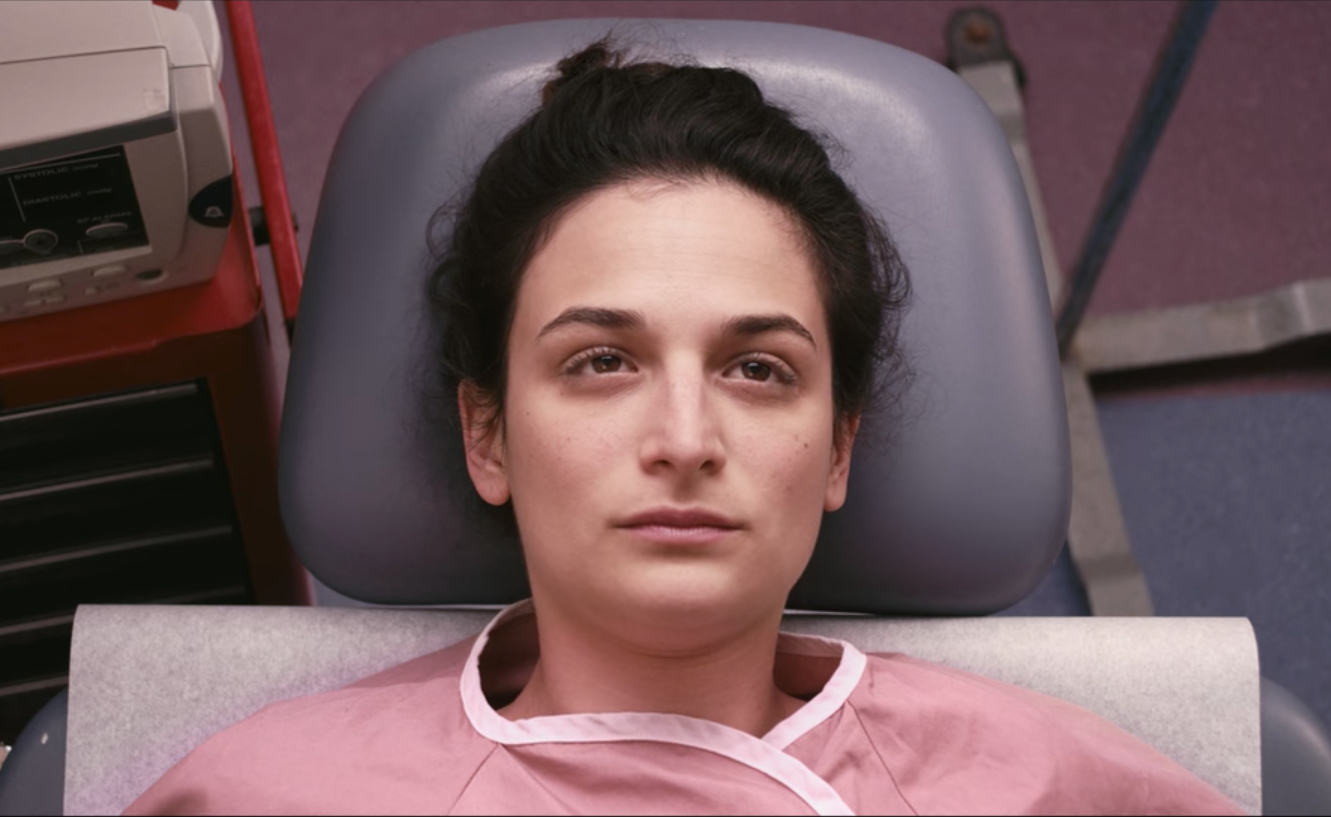interviews
Meaghan O’Connell Thinks Motherhood Is What Keeps Women Oppressed
Her memoir ‘And Now We Have Everything’ doesn’t mince words about the costs that accompany the joys of becoming a mom

A few years ago, I tweeted something along the lines of: “I wonder if my memories of my twenties will just be images of wondering if I’m pregnant in different locations.” I convince myself that I’m pregnant at least every other month. This state of anxiety and wonder — one that is familiar to many women — is where we meet Meaghan O’Connell at the beginning of her memoir And Now We Have Everything. She’s in her late twenties with an overdue period, sore breasts, and a feeling that something is different.
And in O’Connell’s case, it was: the missed period was not a false alarm. She was pregnant, and decided with her fiancé to keep the baby. The subtitle of the book is “On Motherhood Before I was Ready,” and this is the journey O’Connell retraces for us, one of uncertainty and second guessing. But she tells her story with candor, humor, and introspection. Some narratives of pregnancy and motherhood create an “us versus them” dynamic between parents and the childless, which means readers without children can feel shut out. But O’Connell’s work does the opposite: she invites you to experience with her the life of a woman unexpectedly carrying a child.
Ahead of the book’s April release, O’Connell and I spoke about the lineage of the motherhood narrative, the literary moment it’s having right now, and striking the balance between singularity and universality in these stories.
Rebecca Schuh: I’ve found that many books about motherhood establish a distance between parents and non-parents, but And Now We Have Everything avoided that. I don’t have any children, but I felt very included in the narrative. Was that intentional on your part?
Meaghan O’Connell: Yes, totally. There’s a chapter about how after I gave birth, I was with my friends and I wanted to tell them everything and didn’t know how to articulate it, or it didn’t make sense to me yet — that was my motivation when I first started writing the book. I didn’t really feel like a mom yet when I started writing and I was trying to talk to friends that didn’t have kids, so it was very much written in the spirit of “Can you guys believe this shit?” I always hated when people were like “You can’t understand until you do it.” I thought, if I want to call myself a writer I should be able to write about this in a way that is not alienating.
RS: You talk about once you realized you were pregnant, reading mommy blogs and finding solace in women who were forthcoming about their desires for children, versus pretending to not care about it. It seemed like you were in this gray area between, I’m 100% sure and I don’t care at all. Can you speak to the process of figuring out how much you did care, and realizing for yourself where you fell on the spectrum?
MO: Have you read Sheila Heti’s book yet?
RS: It’s literally on my nightstand! I’m looking at it right now.
MO: It’s so good, and completely about this. I’ve been talking to her, and it’s interesting because when I got pregnant I was 29, so having a baby was still this far-off thing. It was almost safe enough to fantasize about in an unrealistic way. “I just want a baby because I would look cute in a maternity dress and buy cute baby clothes.” If I hadn’t actually ended up having a baby, maybe I would be 33 and not sure whether I wanted to have a kid at all. I didn’t get the chance to have the real reckoning, I just did it. It was still this thing that older people did, slash a fantasy.
RS: When you were in say, your early twenties or even teens, was it always that “maybe someday” type of feeling?
MO: I remember telling my mom I didn’t want to have kids and she was like, “You would never do that to me and your father!” It was when I met Dustin, my husband, and started to have domestic fantasies with him that I just had this urge to get pregnant. I think it was more of a biological thing than a rational thing.
RS: It’s funny you bring up the Sheila Heti book, because there are a bunch of other books this year that are delving into the topic of motherhood in really interesting ways. Have you read any others that are coming out now?
MO: When I started writing this book, it was 2014 and The Argonauts wasn’t out yet, Dept of Speculation was just coming out, and After Birth…I’m wondering if this is the wave from people who read those books.
RS: Oh that’s so interesting! I remember that year, I loved all those books, and The Folded Clock. It’s a very rich lineage. I hadn’t thought about that before. There is a clear through-line.
MO: Have you heard of this book The Motherhood Affidavits that’s coming out? It’s by Laura Jean Baker, but it’s fascinating and so different from my book because she’s like addicted to having babies. I guess she struggled with depression her whole adult life and the hormones from breastfeeding made her feel so happy and content for the first time ever, so she had five kids.
I had sort of the opposite chemical reaction! Let’s see, there’s Now My Heart is Full by Laura June, which is captivating because her relationship with her mother, and how their relationship comes back when she has her daughter, is a big part of the book. It’s also fascinating to me because I guess she was more of an adult when she had Zelda, she deals with some of the things that I could not cope with, in such a matter of fact way. “I was exhausted and going crazy so I sleep trained the baby and everything was okay!” It’s a different personality.
What is the meaning behind all this? How is this going to turn out to be worth the mind-fuck?
RS: That’s a big part of why these stories are so compelling. Artists and creative personalities are already so different and unique and strong but then seeing how that mindset is applied to the very fundamental process of creating a person.
In terms of the structure, your book has different sections, and they have several different kinds of narrative formats. From a craft standpoint, how did those come about?
MO: It’s so nice to get a question about this! Structurally the challenge of the book was that I wanted them all to be essays in and of themselves, but to still have a narrative momentum throughout. So they weren’t quite chronological but roughly they are. I wanted to tell a story but also have it be a book of distinct ideas.
I think if men gave birth there would be a grand literature of birth stories.
I struggled a lot with how to end the book. I think the first draft I sent to my editor ended with an essay about daycare. And I liked the idea of it, at least, the happy ending of the book that my child goes to daycare. But I don’t know, it wasn’t quite satisfying enough. And I was living the story as I was writing the book, so I didn’t know what the conclusion was going to be. I had wanted a grand conclusion, but what I ended up trying to get at was that in the end, time just passes. The through-line of the book is trying to figure out, what is the meaning behind all this? How is this all going to turn out to be worth the mind-fuck? And in the end, there’s no big revelation, it’s more like, things were hard. And now they’re not so hard. And that’s how it is. But that’s not really the story we tell about having a baby or being a parent.
RS: There’s that passage where you were talking about how it’s kind of like a career where you’re paying your dues in the beginning…
MO: I don’t know if it’s like that for everyone, but I think probably a lot of people. But then you forget, and you miss your child as a baby so you just remember the good parts. I don’t think everyone is colluding to lie, to make people have babies and ruin their lives too. But I really thought, from what I read, or heard from people, that it was going to be magical and this crazy existential profundity. And I guess there was some of that, but it just seems really weird to me that that’s what the takeaway is! Maybe that was my own self-delusion.
RS: There were strains of commentary throughout the book on the fucked up capitalism of motherhood. There’s a line: “I should have known to be suspicious of the supposed inherent reward of unpaid labor that can be carried out exclusively by the female body.” Can you talk a little more about that?
MO: It was so stark to me, honestly. I was a gender studies major, I was a feminist in high school, I wasn’t one of those people who was thirty-five and hadn’t considered myself a feminist. But I really found myself breastfeeding all the time and thinking, this is why women are oppressed. I figured it out, in this visceral way that was undeniable to me, and an inconvenient reality. You can’t be stuck on a couch feeding your baby around the clock and not thinking about this. I mean, I guess people do. I just remembered this, I was running around the track, my boobs were full of milk, and and I knew I had to be home soon, and I was like, this is it, this is the core of all of it. If women didn’t give birth, we would probably be equal.
I found myself breastfeeding all the time and thinking, this is why women are oppressed.
I remember writing Emily Gould an email about this, and she was like, “You need to read Shulamith Firestone,” who argues that babies should be gestated in vats, and that will be the liberation of women. I don’t think that, I’m getting into dangerous territory here, but it was a definite realization, and I knew it intellectually. Until Dustin and I had the baby we were like, someone has to be watching this child at all times, and we are responsible for him and we have to pay a lot of money to be away from him. This comes down to math — how much daycare in Brooklyn costs and how much I can earn while he’s away from me. That system was built for one parent, aka the woman, to stay home. This is what capitalism is built around.
RS: When you write about the labor experience, I was amazed that you were able to write it so minute by minute, and very viscerally. I was very impressed that you remembered it so specifically, that you were re-inhabiting that mental state.
MO: I wrote it very soon postpartum. I remember it was Labor Day weekend, and I had the baby in June, so it was three months post-partum. I was still in that manic, crazy state of sleep deprivation. That’s the one chapter or essay that hasn’t really changed much since I wrote it the first time. Obviously it’s been edited but there’s no way I could have written that now, or a year ago. It’s visceral because I wrote it when it still was.
RS: You have a passage: “I would save the world except I wasn’t. I was doing the most banal thing in the world. I was giving fucking birth.” I thought that spoke so well to this grand contradiction of how each individual birth is so singular, and society does hold it up to this crazy ideal, but it’s also, you know, something most animals eventually do.
MO: People are dismissive of writing about motherhood or birth stories, it becomes this blogger thing and not literature. But I always tell myself, dying is very universal, too. It’s common, but we don’t say, “Get over it, we all die, shut up, we don’t need to read about this.” I think if men gave birth there would be a grand literature of birth stories.
It’s a contradiction, it’s the craziest day in my life, or the worst day of my life, but there’s fifty other women on the same floor giving birth that day.
RS: I’m reading Leslie Jamison’s new book on alcoholism and recovery, and she talks a lot about how the commonality between stories is more important than the uniqueness of any story. And how that was hard for her as a writer, because you’re like “I want to be the unique one.”
MO: She writes so well about that, about the cliché and embracing it in a way, and undercutting it.
RS: There’s a similarity between her book and the motherhood narrative. She says several times in the book, “I would tell people that I was writing a book about addiction and they were like, ‘oh just another addiction memoir.’” It’s strange that’s even become a stereotype — in the right hands either of these stories are so individually fascinating.
MO: Reading her book, that self-doubt, that sort of meta, underlying question of, “is this story worthwhile?” or, “how do I do this in a way that justifies its existence?” In a way it’s just a mental trap. Internalized misogyny, at least with motherhood stuff.
RS: Internalized art misogyny, wherein women start questioning themselves on what topics are worthy of the canon.
Once you’re back home with the baby, you have this line: “I was not just trapped in an apartment with my tits out, I was trapped in love with him. I could never go back to before.” Is there still that strict line between the eras of your life?
MO: It was so stark then. It was suffocating. There was no way out, “I am trapped, this is irrevocable.” It doesn’t feel like that anymore! Now my life is like, I take my kid to daycare at 8:30 and he comes home at 5 with his dad. I have those hours in the day to do my work and be a person, which is logistically completely different. But it’s weird to think about before, when I was a person that was 28 and lived in Brooklyn and had freedom. It’s not like you can be continuously aware that you are free and can do whatever you want. I mean you can try! But I think I wrote something about how we spent the night in a hotel one night and I was like “wow I had a baby just to feel this free away from him?” I can appreciate it now in a way I wasn’t able to then.
It is strange because I’ll show my son pictures of me and Dustin before he was born, and he’ll say “Where was I?” And I think, god that is weird, that you didn’t exist yet.









